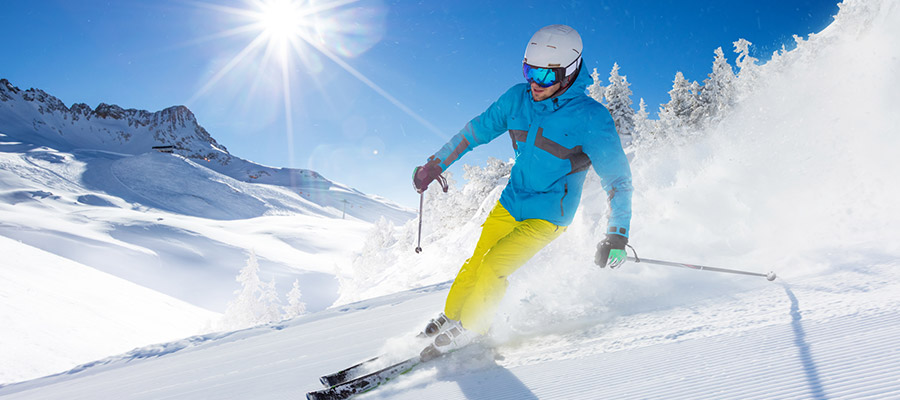
Thousands of athletes and everyday participants in winter sports are treated for injuries each year. Activities such as ice hockey, ice skating, skiing, snowboarding, sledding, and snowmobiling cause common injuries of concussions, fractures, wrist sprains, broken legs, and damaged ACLs/MCLs.
HOW TO STAY SAFE
The risk of injuries can be reduced if participants properly prepare for their winter sport/activity by taking the following precautions:
- Keep in good physical shape throughout the year, not only during the winter
- Always supervise young children, whether they are advanced or still learning the sport
- Determine the current conditions of the snow, ice, or wind, and pay attention to any expected changes such as upcoming storms
- Dress appropriately for the sport and weather – typically, layering water-resistant and sweat-resistant clothing is ideal to accommodate your body’s changing temperature
- Where appropriate gear – including helmets, goggles, wrist guards, and padding – and ensure all equipment is in working order
- Protect any exposed skin from the sun and wind with sunscreen, even on cloudy days
- Do not participate in the sport alone
- Learn the symptoms of concussion in order to help others who may be injured during participation in the sport
- Follow all the rules of the sport
- Take lessons from a qualified instructor if you are unsure how to participate safely
- Ensure that you know how to fall properly without injury
- Make sure you are well-rested and alert before beginning the sport
- Stay hydrated before, during, and after participating in the sport, and avoid alcohol consumption
- Stretch and warm up your muscles prior to participating in the sport
- Stop participating in the sport immediately if you are in pain, exhausted, or excessively cold
For skiing and snowboarding:
- Technicians in the ski lodge can check that your bindings are in working order
- If you’re a beginner, start with an easier slope before the more difficult ones
- Pay attention to your surroundings, the terrain, and other participants
- Remain on open and marked trails
- Stay in control and do not excessively speed
- If you feel that you are unable to proceed on the slope, take off your equipment and side-step down the slope
If you experience any kind of injury while participating in a winter or other sport, call us today to make an appointment with our doctors who are experts in sports injuries!
The content provided in our website blogs is offered for informational purposes only, and it should not be considered as the practice of medicine or medical advice regarding the diagnosis or treatment of any medical condition or disease. You should consult with a medical professional if you have any questions regarding a condition or disease in relation to your specific healthcare needs. If you feel that you are experiencing a medical emergency, please contact 911 immediately.

